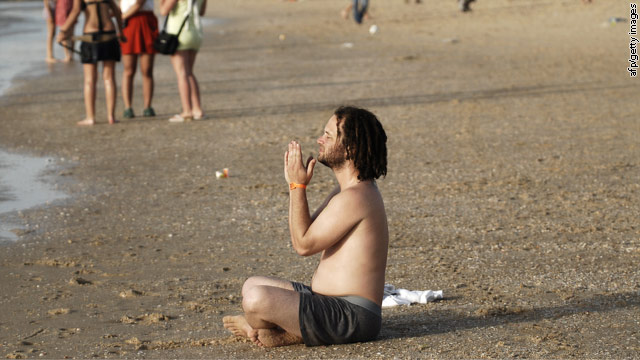CNN.com raises a very intriguing and important question. Are there dangers in being “spiritual but not religious”? Not needing a community or a church when a beach will do? In a 2009 survey 72 percent of millennials (18- to 29-year-olds) said they’re “more spiritual than religious.” The phrase is now so commonplace that it’s spawned its own acronym (“I’m SBNR”) and Facebook page: SBNR.org
from the article:
“I’m spiritual but not religious.”
It’s a trendy phrase people often use to describe their belief that they don’t need organized religion to live a life of faith.
But for Jesuit priest James Martin, the phrase also hints at something else: selfishness.
“Being spiritual but not religious can lead to complacency and self-centeredness,” says Martin, an editor at America, a national Catholic magazine based in New York City. “If it’s just you and God in your room, and a religious community makes no demands on you, why help the poor?”
Religious debates erupt over everything from doctrine to fashion. Martin has jumped into a running debate over the “I’m spiritual but not religious” phrase.
The “I’m spiritual but not religious” community is growing so much that one pastor compared it to a movement. In a 2009 survey by the research firm LifeWay Christian Resources, 72 percent of millennials (18- to 29-year-olds) said they’re “more spiritual than religious.” The phrase is now so commonplace that it’s spawned its own acronym (“I’m SBNR”) and Facebook page… [MORE of the CNN article]
What do you think?

I cringe when I hear people utter this phrase. I believe I first started hearing it about 10-12 years ago from non-other than Madonna. What does it mean ? The only time I was spiritual but not religious was over twenty years ago–when I used to enjoy a cocktail or two and became very spiritual (upon arriving home) while hugging the porcelain throne. In all seriousness – I think the answer lies in the secular, hedonistic post-modern theory that was prevalent when I went to college in the eighties and has now had a multi-generational impact of educators and parents just appeasing their children!